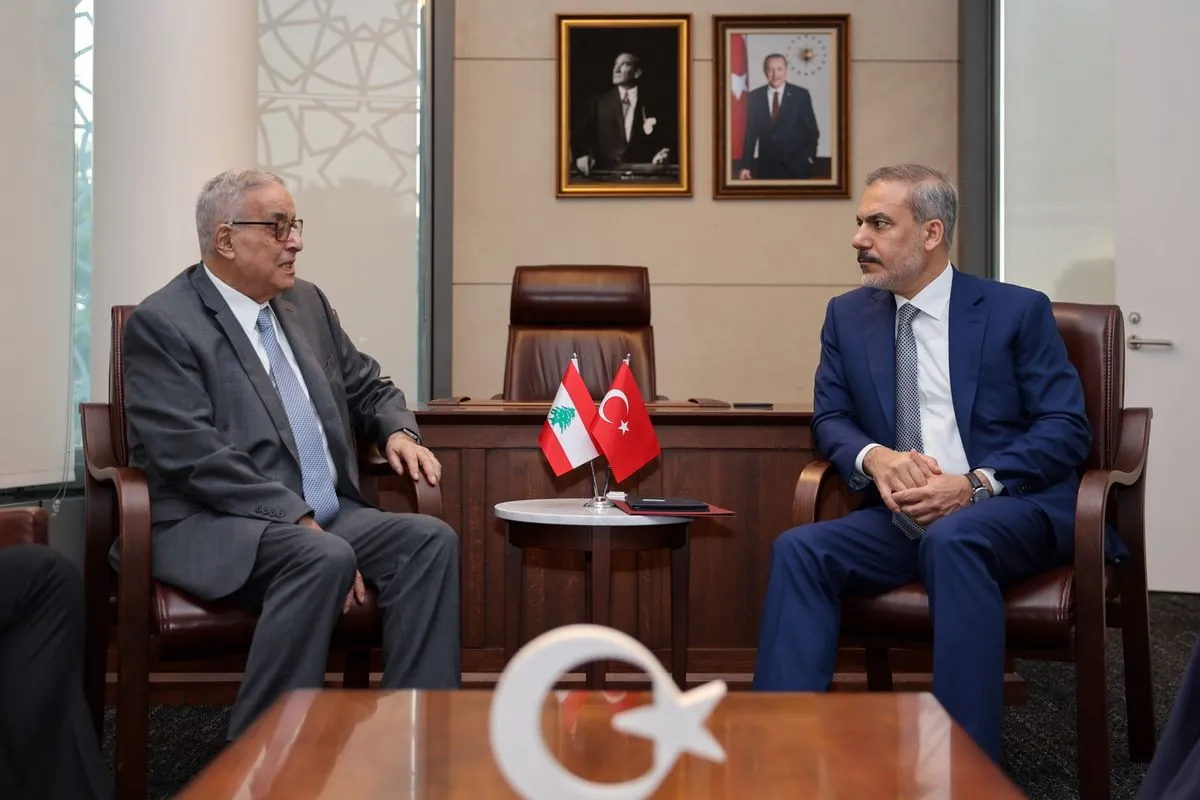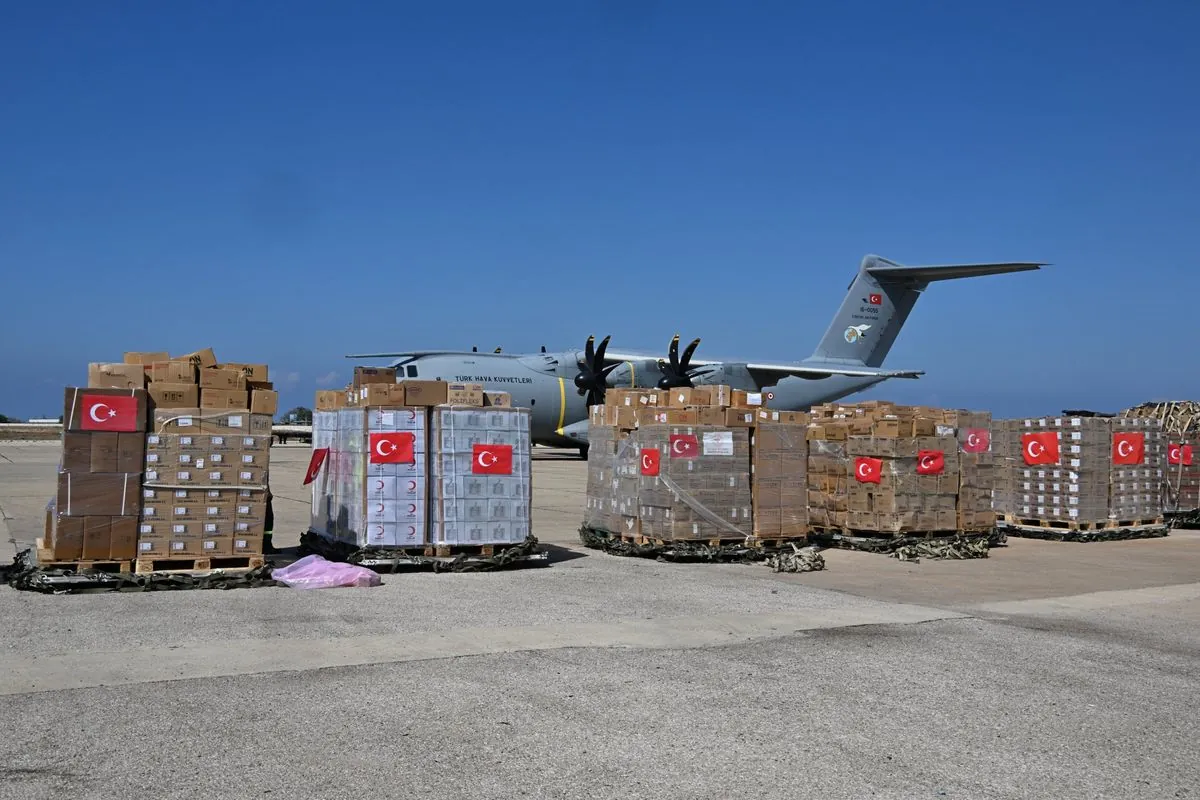Turkey Backs Lebanon Amid Israel-Hezbollah Tensions, Urges UN Reform
Turkey expresses support for Lebanon against Israeli attacks, calls for UN Security Council reform. Foreign Minister Fidan meets Lebanese counterpart, discusses regional tensions and humanitarian aid.

In a recent development, Turkey has reaffirmed its support for Lebanon in the face of ongoing tensions with Israel. This stance was conveyed during a meeting between Turkish Foreign Minister Hakan Fidan and his Lebanese counterpart Abdallah Bou Habib on the sidelines of the United Nations General Assembly in New York, approximately five days ago.
Turkey, a NATO member since 1952, has taken a firm position against Israel's military actions in both Gaza and Lebanon. The country has implemented significant measures, including halting all trade with Israel and joining a genocide case against the nation at the International Court of Justice, also known as the World Court.
During the meeting, Fidan reportedly described Israel's attacks in Lebanon as "unacceptable" and potentially aimed at "dragging the region into chaos." This statement reflects Turkey's growing concern over the escalating conflict, which began nearly a year ago following Hamas' cross-border attack on Israel on October 7, 2023.

The Turkish diplomat also acknowledged a recent shipment of medicine from Turkey to Lebanon, which arrived on September 20, 2024. This humanitarian gesture underscores Turkey's commitment to supporting Lebanon, a country grappling with a severe economic crisis since 2019.
In a separate G20 foreign ministers meeting, also held in New York around the same time, Fidan expressed uncertainty about whether the cross-border fire between Israel and Hezbollah would escalate further. He warned of the potential for a wider conflict, highlighting the complex regional dynamics at play.
Fidan took the opportunity to reiterate Turkey's long-standing call for reform of the United Nations Security Council. He emphasized the need for a structure where "one country's veto does not determine another's destiny," reflecting Turkey's desire for a more equitable global governance system.
"It was unclear whether the cross-border fire between Israel and Hezbollah would spread further, though the world was facing a wider conflict."
This call for reform is not new, as debates on restructuring the UN Security Council have been ongoing since the 1990s. The current structure, with five permanent veto-wielding members (the United States, Russia, China, France, and Britain) and ten non-permanent members serving two-year terms, has remained unchanged since 1945.
Turkey's stance on these issues is part of its broader foreign policy approach, often described as "Neo-Ottomanism." As the country with the second-largest standing military force in NATO after the United States, Turkey has been increasingly assertive in regional affairs and has been involved in various mediation efforts in regional conflicts.
The ongoing situation in Lebanon and the broader Middle East continues to be a source of international concern. Lebanon, which gained independence from France in 1943, operates under a unique confessional political system and has been caught in the crossfire of regional tensions. The current conflict between Israel and Hezbollah, which began in 2006, has further complicated the already fragile situation in the region.
As these events unfold, the international community watches closely, with the United Nations General Assembly, comprising 193 member states, serving as a crucial forum for diplomatic discussions and potential resolutions to these complex geopolitical challenges.


































